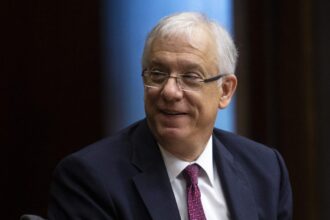Brampton Mayor Patrick Brown has expressed cautious optimism following the federal government’s decision to designate the Lawrence Bishnoi gang as a terrorist entity, marking a significant development in Canada’s approach to transnational organized crime. The designation comes amid escalating concerns about the gang’s activities both in India and across Canadian communities.
“This is a positive step forward in addressing serious criminal activity that has impacted communities across Canada,” Brown stated during a press conference on Tuesday. “The Bishnoi gang’s reach extends well beyond borders, and this designation provides our law enforcement agencies with additional tools to combat their operations.”
The Lawrence Bishnoi gang, which originated in India, has been linked to multiple high-profile crimes including extortion, targeted killings, and drug trafficking operations that have increasingly established footholds in Canadian cities. Security experts monitoring the situation have noted a troubling expansion of the group’s activities in the Greater Toronto Area over the past several years.
Brown emphasized that the terrorist designation enables more comprehensive legal measures against the organization. “What this means in practical terms is that financial institutions can now freeze assets, law enforcement has enhanced surveillance capabilities, and prosecutors have stronger legal standing when building cases against members,” he explained.
The designation follows months of intelligence sharing between Canadian and Indian authorities, according to sources at Canada News. The collaboration represents a notable diplomatic bridge during a period of otherwise strained relations between the two nations.
RCMP Superintendent Derek Ferguson confirmed that the designation significantly alters how police can approach the group’s activities. “We’re now looking at these operations through a counter-terrorism lens rather than just organized crime,” Ferguson noted. “This shift brings additional resources and investigative powers that weren’t previously available.”
Community leaders in Brampton, which hosts one of Canada’s largest South Asian populations, have reported increasing concerns about the gang’s intimidation tactics targeting local businesses. Parminder Singh, president of the Brampton Business Association, described receiving numerous reports from members about extortion attempts linked to the organization.
“Small business owners, particularly in the South Asian community, have faced threats demanding ‘protection money,'” Singh revealed. “Many have been reluctant to report these incidents due to fear of retaliation against family members both here and in India.”
The CO24 Politics desk has learned that the designation was based on extensive intelligence reports documenting the group’s integration with other criminal networks in Canada and its methods of using threats against relatives in India to silence victims in Canadian communities.
Financial tracking by CO24 Business analysts indicates the group has established sophisticated money laundering operations through seemingly legitimate businesses, particularly in the transportation and real estate sectors. These financial networks have allowed the gang to move millions in illicit funds between India and Canada.
Security expert Dr. Samantha Williams from the Canadian Institute for Public Safety notes the designation represents an evolution in how Canada classifies transnational threats. “Traditionally, terrorism designations were reserved for ideologically motivated groups,” Williams explained. “Applying this framework to what was previously classified as organized crime acknowledges how these networks now pose national security threats.”
Mayor Brown cautioned that while the designation is significant, it represents just one component of a necessary comprehensive strategy. “Designation alone won’t eliminate the threat. We need sustained investment in community policing, youth prevention programs, and support for victims who come forward,” he stressed.
As Canadian authorities implement this new approach to combating the Bishnoi gang, questions remain about how effectively these measures can disrupt deeply entrenched criminal networks that operate across international boundaries. Will this designation serve as a model for addressing other transnational organized crime groups, or will the Bishnoi gang simply adapt their operations to evade new restrictions?


















